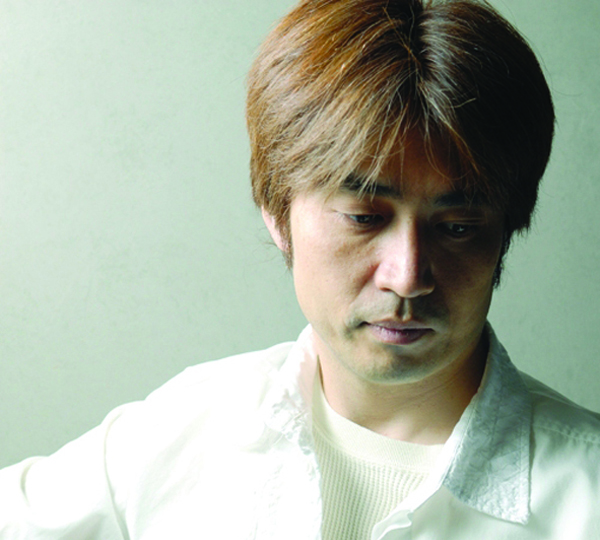Singer-songwriter Ryoichi Higuchi received an anonymous email that would change his life. The native Japanese speaker was puzzled but inspired by the mysterious communiqué written entirely in Portuguese. In a quest to find meaning in the strange message, he penned a song, based on its lyrics, that has gone global. The slow, emotional balled dubbed ‘tegami‘ (letter) was recorded in three languages, Japanese, Portuguese and English. Weekender met Higuchi to discuss this project and his future plans.
His name might not ring a bell, but it’s a certainty you’ve heard his music – he’s ghostwritten for a veritable Who’s Who of J-pop, including the Kinki Kids, Kenji Sawada, SMAP and Hitomi. Born in 1964 in Kumamoto, he found his calling early; at the age of six he started learning guitar, and formed a teenage band covering favourites from Led Zeppelin and the Beatles.
Tell us a little about how the song ‘Tegami’ came about.
My friend Tomoo Sumi forwarded an email to me back in 2007, it came from Brazil and seemed to be a message from an elderly parent to their own child. It was written in Portuguese and Mr. Sumi translated it in Japanese and read it to me. Those words were unforgettable and stuck in my mind, and after a while, I decided to make them into a song, and I eventually came up with this eight and a half minute composition.
Do you know who sent you the original email that led to the song being recorded?
No, I still don’t know who sent the email. It’s a complete mystery.
What inspires your lyrics?
Most of the lyrics were inspired by the original email, but the two parts where they go like “The passage of life is not a sorrow…” I created myself. This part of the song has a very strong message about life and death, showing that–as I believe, death is not the end, but the start of the next stage.
Why did you record Tegami in several languages?
First of all, I sang it in Portuguese because I wanted to meet the author of the original message. One of my goals is to travel to Brazil where the words came from and perform my song live. The reason I recorded it in English is that I thought this was the best way to express the universal theme regardless of nationality or culture. I believed by delivering it in English, Japanese and Portuguese, there will be more chances that so many people all over the world will be in touch with this song.
The Youtube video is a big hit, why did you choose an animation?
This idea came from my friends. By making it into an animation, it will be much easier to deliver my message. In some senses, it expresses the vivid reality that the song has, and communicates the kindness behind the words. I really liked the animation and decided to stick with it.
What can readers expect from you next?
I will continue to deliver this letter to everyone in Japan and overseas. I would also like to keep writing new songs dealing with the wonderfulness of life!
Have a look at the video in English here, or check out Higuchi’s website here.









